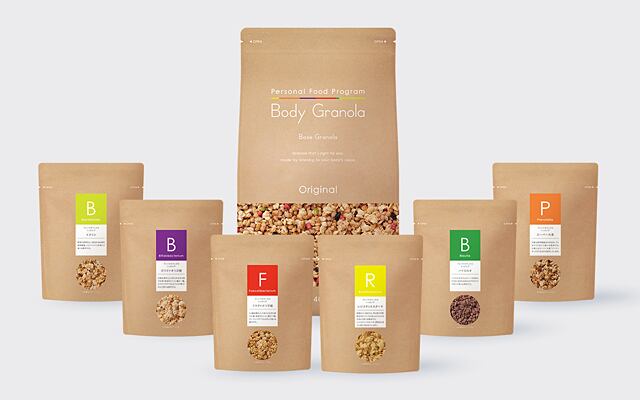The company believed that personalized nutrition would become more common in the future.
It plans to hone its existing gut microbiome testing services and leverage prebiotics as an essential part of nutrition.
“We expect precision nutrition, or personalized dietary approaches tailored to individuals, will become increasingly widespread in the future.
“In line with this growing trend, we are aiming to develop products and services based on individual microbiota,” Hidemasa Yanai, general managing director, new business advancement division, Calbee, Inc said in response to NutraIngredients’ queries.
Gut health, which studies show can link to sleep quality, is an area that the company hopes to provide personalized nutrition for.
“Existing research in Japan suggests that taking probiotic supplements can improve the quality of sleep and increase resilience to stress, and a market for these products already exists as well.
“However, we believe prebiotics can also provide a novel approach to improving sleep quality,” added Dr. Hirofumi Masutomi, section manager of the functional research section at Calbee’ R&D division.
The company has been steering more towards food and health as part of its medium to long-term growth strategy released in 2023. It has also identified its overseas and agri-business as sectors with good growth opportunities.
To kick off its health business, Calbee launched the personalized nutrition service “Body Granola” in April 2023.
As of June 2025, more than 30,000 people have used the service, according to Yanai.
Users would need to provide their stool samples, which would then be sent for analysis.
Calbee collaborated with Metagen and Cykinso to develop the service. As part of the service, Cykinso is responsible for providing the stool sample analysis.
Based on the results, Calbee then recommends and supplies the appropriate prebiotic toppings and base granola.
Three out of the six available prebiotic “toppings” would be recommended. They are inulin, resistant starch, galacto-oligosaccharides (GOS), fructo-oligosaccharides (FOS), high cocoa, and a blend of prebiotic fibre commercially sold as BarleyMax.
According to the company, the prebiotics are recommended based on the bacteria types that are abundant in the users’ gut microbiota to feed the beneficial bacteria.
A “base” granola would also be provided as part of the personalized nutrition service. The idea is to mix and consume the prebiotic toppings and base granola together to support a healthy gut.
The gut microbiome test is priced at JPY16,500 (US$111) after tax, while a month’s subscription of the prebiotics and granolas costs JPY3,780 (US$25) after tax.
Yanai added that the platform also provides online dietary consultations with registered dietitians as part of the post-test support.
“This has been well received, with users saying it helps them understand how to incorporate the right foods for their specific conditions.
“We aim to continue evolving Body Granola into a service that is easily integrated into daily life and easy to maintain, by listening closely to each customer’s feedback and behavioral trends,“ he said.
Calbee’s research on prebiotics, sleep and gut
One of the latest research findings that Calbee has released was on how mixed prebiotic and granola consumption could improve subjective sleep quality and alleviate mental and physical stress state.
The study was conducted with S’UIMIN, a Japanese company that provides sleep quality measurement devices and analysis.
A total of 27 individuals determined to be highly stressed by the Brief Job Stress Questionnaire (BJSQ) were asked to eat granola mixed with six prebiotic ingredients for breakfast every day for eight weeks.
They were also asked to complete questionnaires assessing their sleep quality, including the Oguri-Shirakawa-Azumi (OSA) sleep questionnaire (MA version), the Profile of Mood States Second Edition (POMS 2), and the Athens Insomnia Scale. Stool samples were also collected to analyze their intestinal microbiota.
The findings, announced at the 79th Annual Meeting of the Japan Society for Nutrition and Food Research, included changes in the gut microbiota and subjective sleep rating.
For instance, Bacteroides had decreased and Bifidobacterium increased by the end of the study. The changes were statistically significant.
There were also improvements in the stress and mood based on the results of BJSQ and POMS 2 questionnaires.
“Multiple regression analysis using these results showed a significant association between Bifidobacterium, the Athens Insomnia Scale, POMS2, and BJSQ.
“This result suggests that taking granola containing prebiotics may increase Bifidobacterium and improve physical and mental stress and subjective sleep states," said the company.
Prior to this study, the company also conducted a RCT examining the consumption of dietary fibre-rich granolas and its effects on the gut environment.
The four-week study involved 68 individuals who were randomised to take either milk with fruit granola or corn flakes - both of which provided by Calbee - for their daily breakfast. The fruit granola contained 4.5 grams of dietary fibre, while corn flakes contained 2.7 grams.
Findings were published in Frontiers in Nutrition in February 2024.
One of the key findings was that bowel movement had significantly increased in both groups after the end of the trial, which the researchers said could be attributed to the increased dietary fibre intake.
Another key finding was an increase in different bacterial species in both groups.
In the group taking corn flakes, the relative abundance of Bifidobacterium, Subdoligranulum, Ruminococcus 2 and Collinsella had significantly increased.
In the group taking fruit granolas, it was Parabacteroides, Mitsuokella, Ruminiclostridium5, Veillonella, and Collinsella that saw a significant increase.
“This study indicated that the consumption of cereals such as FG (fruit granolas) and CF (cornflakes) may provide dietary fiber and improve bowel movements in response to insufficient dietary fiber intake,” said the researchers.


